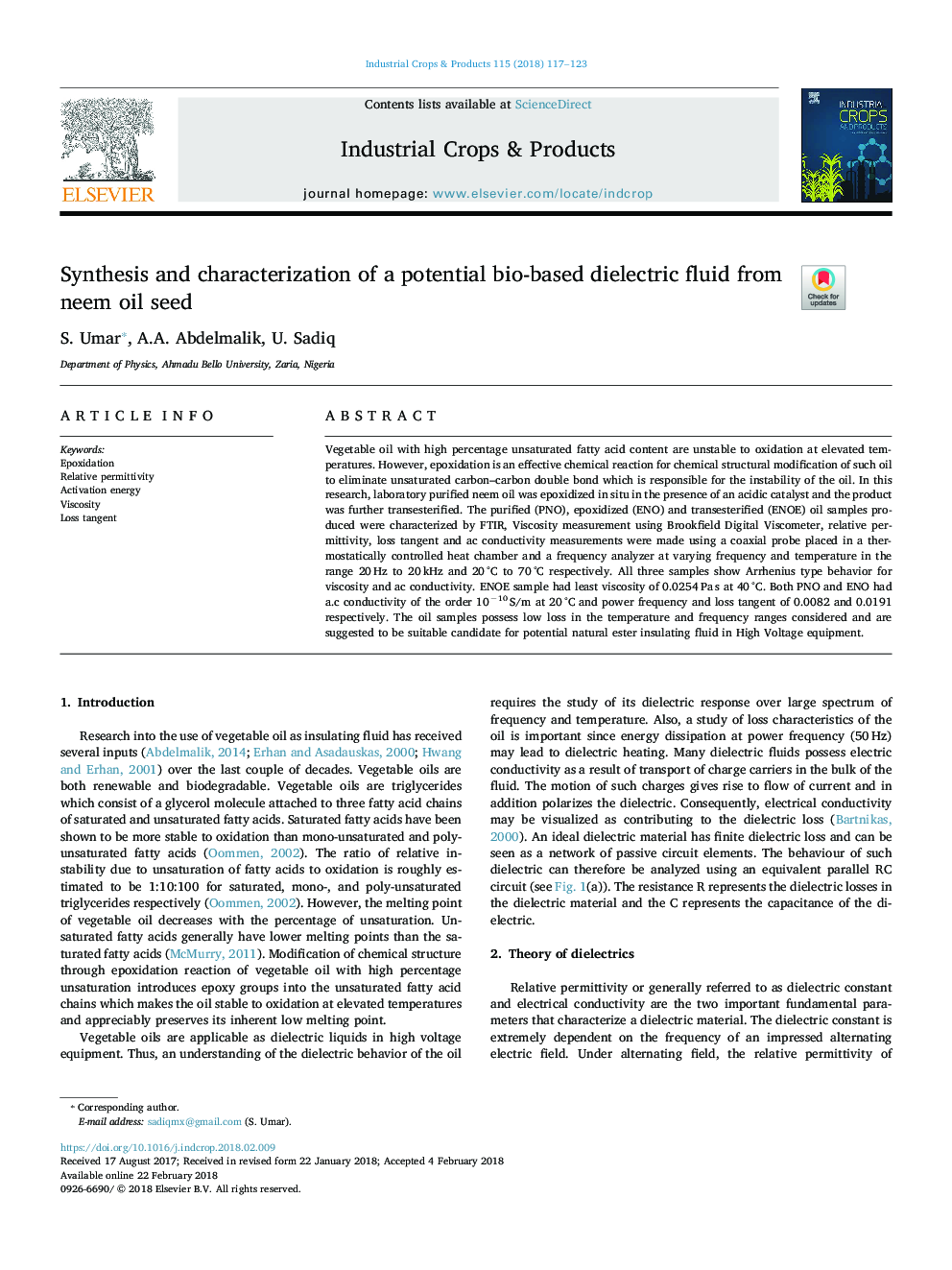| Article ID | Journal | Published Year | Pages | File Type |
|---|---|---|---|---|
| 8880368 | Industrial Crops and Products | 2018 | 7 Pages |
Abstract
Vegetable oil with high percentage unsaturated fatty acid content are unstable to oxidation at elevated temperatures. However, epoxidation is an effective chemical reaction for chemical structural modification of such oil to eliminate unsaturated carbon-carbon double bond which is responsible for the instability of the oil. In this research, laboratory purified neem oil was epoxidized in situ in the presence of an acidic catalyst and the product was further transesterified. The purified (PNO), epoxidized (ENO) and transesterified (ENOE) oil samples produced were characterized by FTIR, Viscosity measurement using Brookfield Digital Viscometer, relative permittivity, loss tangent and ac conductivity measurements were made using a coaxial probe placed in a thermostatically controlled heat chamber and a frequency analyzer at varying frequency and temperature in the range 20â¯Hz to 20â¯kHz and 20â¯Â°C to 70â¯Â°C respectively. All three samples show Arrhenius type behavior for viscosity and ac conductivity. ENOE sample had least viscosity of 0.0254â¯Paâ¯s at 40â¯Â°C. Both PNO and ENO had a.c conductivity of the order 10â10â¯S/m at 20â¯Â°C and power frequency and loss tangent of 0.0082 and 0.0191 respectively. The oil samples possess low loss in the temperature and frequency ranges considered and are suggested to be suitable candidate for potential natural ester insulating fluid in High Voltage equipment.
Related Topics
Life Sciences
Agricultural and Biological Sciences
Agronomy and Crop Science
Authors
S. Umar, A.A. Abdelmalik, U. Sadiq,
